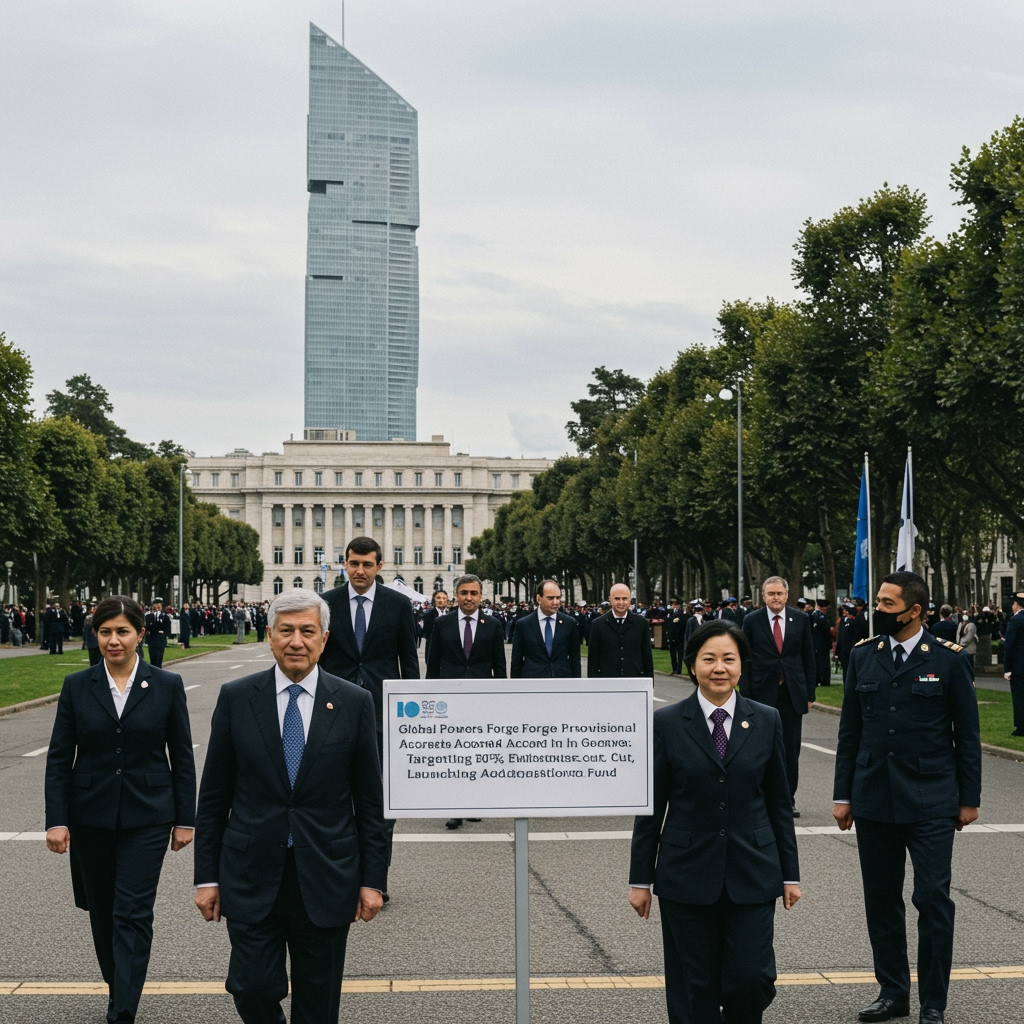Global Powers Forge Provisional Climate Accord in Geneva
Geneva, Switzerland – Following a period of tense, extended negotiations, representatives from the P5+1 nations and several key developing economies announced late Tuesday, February 24th, that they had reached a provisional agreement on new global emissions targets and climate financial aid. The accord, finalized after marathon talks in Geneva, marks a significant, albeit initial, step in the international community’s ongoing efforts to combat climate change.
The core of the agreement centers on a binding commitment for signatory nations to collectively achieve a 20% reduction in carbon emissions by the year 2035, measured against 2020 levels. This target is ambitious and represents a notable acceleration of previous global aspirations, reflecting growing scientific urgency regarding the pace of climate change.
Beyond emission reduction goals, a critical component of the provisional accord is the establishment of a new fund specifically designated for climate adaptation aid. This fund aims to provide financial and technical support to vulnerable nations disproportionately affected by the impacts of climate change, such as rising sea levels, extreme weather events, and desertification. Initial commitments to back this fund have been pledged by several major economies and key signatories to the accord, including the United States, the European Union, and China.
The negotiations leading up to this agreement were reportedly challenging, highlighting the complex dynamics and differing priorities between developed nations, historically responsible for a larger share of emissions, and developing economies, which face significant development needs alongside climate vulnerabilities. Sources close to the talks indicated that disagreements over burden-sharing, both in emissions cuts and financial contributions, necessitated the extended deliberation period in Geneva.
While the headline targets and funding mechanism have been announced, key operational details of the agreement remain under wraps for now. Representatives indicated that specifics regarding the enforcement mechanisms designed to ensure compliance with the emissions targets, as well as the precise breakdown of specific national contributions to both the emission cuts and the adaptation fund, are expected to be released later this week. The nature of these enforcement mechanisms is seen as crucial by many observers, as the effectiveness of international accords often hinges on robust accountability frameworks.
Environmental advocacy groups, who have closely monitored the Geneva talks, offered a reaction characterized by cautious optimism. They acknowledged the ambition of the 20% emissions reduction target by 2035 as a positive and necessary step forward. However, their statements also highlighted significant concerns regarding accountability and verification. Groups stressed the importance of transparency in monitoring national progress, independent verification processes, and clear consequences for failing to meet commitments. The gap between setting ambitious targets and ensuring their actual implementation remains a key focus for these organizations.
Analysts suggest that reaching a provisional agreement involving such a diverse group of major powers and developing economies signals a renewed global commitment to multilateral climate action, despite geopolitical tensions. The inclusion of key players like the US, EU, and China as financial contributors to the adaptation fund is particularly noteworthy, potentially paving the way for greater solidarity in addressing climate impacts. However, the success of this accord will ultimately depend on the strength of the final detailed agreement, particularly the enforcement provisions, and the willingness of individual nations to translate these collective goals into concrete domestic policies and actions.
The provisional nature of the accord means that while the core framework is agreed upon, specific language and annexes detailing implementation are still being finalized. This allows for minor adjustments but signifies that the major political hurdles appear to have been cleared in Geneva. The focus now shifts to the release of the full details later this week, which will provide a clearer picture of how these ambitious targets are intended to be achieved and verified on a global scale. The path forward involves not only the formal ratification processes within each signatory nation but also the complex task of integrating these global commitments into national climate policies and economic planning over the next decade and beyond.
The outcome from Geneva represents a moment of hope tempered by the significant challenges that lie ahead in the global fight against climate change. While the commitment to a 20% emissions reduction by 2035 from 2020 levels and the creation of the adaptation fund are positive developments, the true test will be in the follow-through and the robustness of the mechanisms designed to hold nations accountable for their pledges. The international community will be watching closely as the remaining details are unveiled later this week, seeking assurance that this provisional accord lays a solid foundation for effective and equitable climate action in the years to come.





